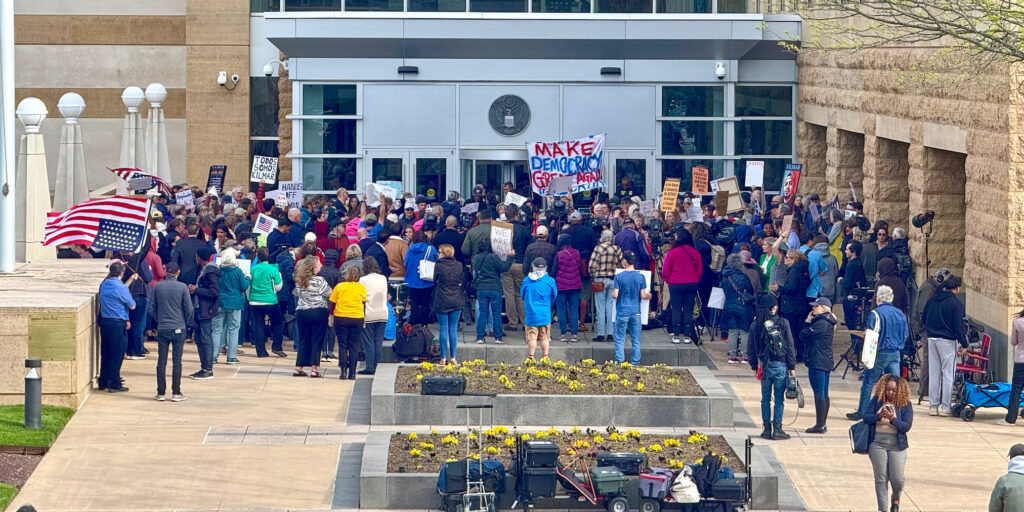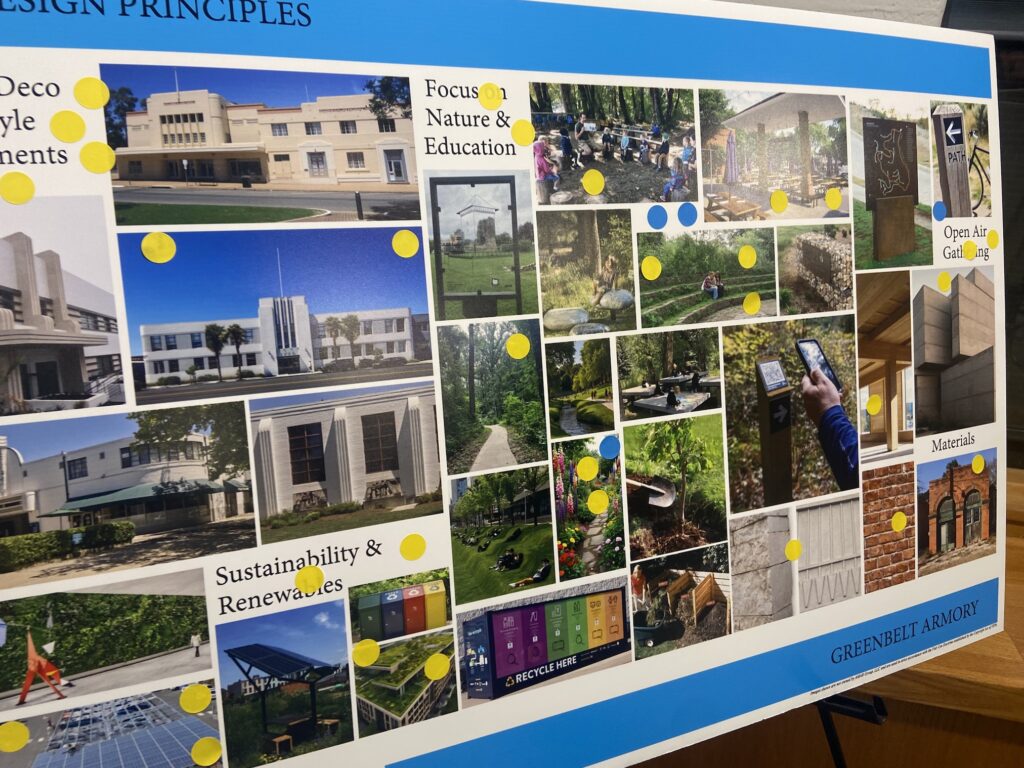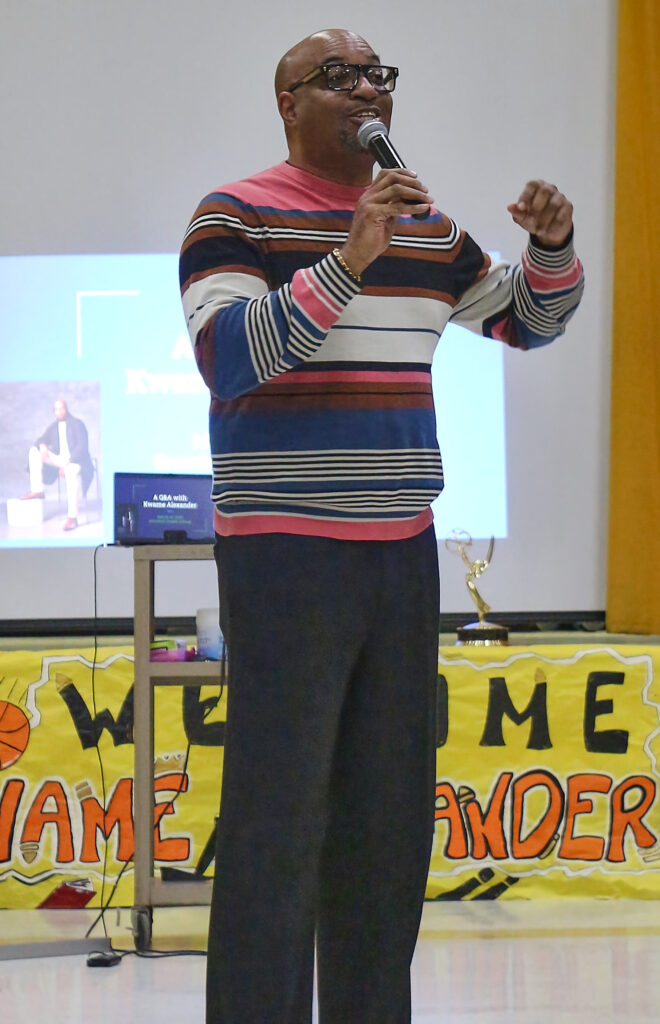On Wednesday evening, June 5, the Greenbelt City Council heard reports from Tribesy regarding Phase II of the Justice, Equity, Diversity and Inclusion (JEDI) audit and from the Reparations Commission.
Part of this worksession was aimed at hearing from the Greenbelt Reparations Commission regarding its second report to council and how council may facilitate its work. It had been about 15 months since council last met with the group. At this meeting the commission was represented by Lorena Ferguson, Mark Miller, Denise Nadasen and Lois Rosado. This commission was established in 2022 to review, discuss and make recommendations related to local reparations for African American and Native American residents of Greenbelt. Although the initial instructions to the commission were vague, the commission has made strides in developing a governance structure for its work, establishing committees and laying a path forward.
Planning
Members of the commission held a retreat in March to identify goals and ways to achieve those goals. During the retreat the commission created a Strategic Planning Work group. This group will develop a working definition of terms, determine the scope for a historic data collection time frame, set a time frame for the completion of work, identify demographics/populations (stakeholders), and create and distribute a survey to measure community members’ knowledge and attitudes on reparations and governance.
It also set up three new subcommittees: 1) The Historical Research Subcommittee (HR) will conduct research on the harms caused to African Americans and Indigenous People on Greenbelt land; 2) The Reparations Policy Research Subcommittee will explore how other localities approach reparations; and 3) The Community Education and Engagement Subcommittee will identify and interview impacted community members to learn about their perspectives on systemic harm and current experiences. This subcommittee will also educate the community about the history of Greenbelt and share updates on the progress.
In general, members of the commission feel they are making progress and have a 500-page document of historical facts that needs to be explored in order to create recommendations. They believe that for the commission to be successful they will need paid staff and financial resources. The commission is also missing representation from Native American people. This effort is too onerous to be successfully completed by an all-volunteer commission hence the commission will develop a budget detailing what they need to complete their mission.
Council’s Reactions
Councilmember Silke Pope regretted the initial lack of instruction from the council while Councilmember Kristen Weaver felt that the group has arrived at a good place and welcomes seeing a budget. Mayor Emmett Jordan pointed out that when the commission was first established, they attempted to identify a Native American person but were unsuccessful and this observation led to a discussion of how to find such a person.
Phase II of JEDI audit
The council learned more about Phase II of the JEDI audit through a presentation by Tribesy, the consulting firm conducting the audit. The second phase will focus on a community assessment and hopes to garner input from segments of the population not usually asked for their opinion or who do not engage with the city council. (See the presentation via a link from the agenda packet for this worksession, accessed from the Municipal Access TV button at greenbeltmd.gov.)
This second phase has a quantitative survey but also includes holding community dialogues (both in person and online) to capture the experiences of residents and their sense of inclusion and belonging in the community. Using volunteers, these dialogue sessions will engage city residents and will capture their stories and voices. Tribesy and city staff are trying to be innovative in how they identify and reach these unheard members of the community. During this phase there is an opportunity for gathering data that could be useful for the Reparations Commission. The plan is for the community dialogue sessions to be held in August with a report prepared for council by December.
Council’s Thoughts
Jordan wanted to ensure that there wasn’t overlap between the Reparations Commission and the JEDI audit. He also felt that council prides itself on listening to the community and there is a community survey conducted regularly to gain input from Greenbelt residents. Councilmember Danielle McKinney believes there is some overlap between the commission and the JEDI audit but the goals are different. The commission is exploring what happened in the past and how to right wrongs. The JEDI audit is a wider look at how the city engages with the community but both efforts are equally important. She felt that the August time frame is good but it could miss those on summer vacations.
Weaver believes that it is taking too long to get the results of the community survey and is hoping that Tribesy it going out into the community rather than residents coming to them. Tribesy said one segment of the population they are trying to reach are young people (African, Black American and Latinx). They are seeking to visit restaurants and locations where they can find these residents and using social media tools like TikTok to get to them. There were several other suggestions from council and audience members on how to reach out to the community.
Former councilmember J Davis wanted to know when there would be a worksession with the community around the results of Phase I. She is also concerned with how fine-tuned the second phase will be and how it will be able to reach the many different groups. Councilmember Jenni Pompi was not in favor of having another presentation on Phase I of the JEDI audit and wondered what the goal of a second presentation would be. She didn’t want city staff to feel like they are under the gun or that their experiences are being questioned and that it takes a lot to speak out about injustice in the workplace.
Davis believes that some residents felt that the JEDI Phase I report was too critical of city staff and policies. She was concerned about the terminology used and felt there was something to be gained by clarifying how the data were collected and the terms used in the report. Pope received negative feedback on the language and felt there was a need for a worksession prior to phase II. Jordan suggested that council discuss this more.
City Manager Josué Salmerón said, “… If you ask employees how they feel about the workplace you have to be prepared to hear the truth. We asked them [city employees] what their experiences were in the workplace and this is their truth.”
Finally, resident Bill Orleans believes there is no formal way for a city employee to express a grievance without fear of repercussions. He wished council would take action on this by amending the charter to allow collective bargaining.



